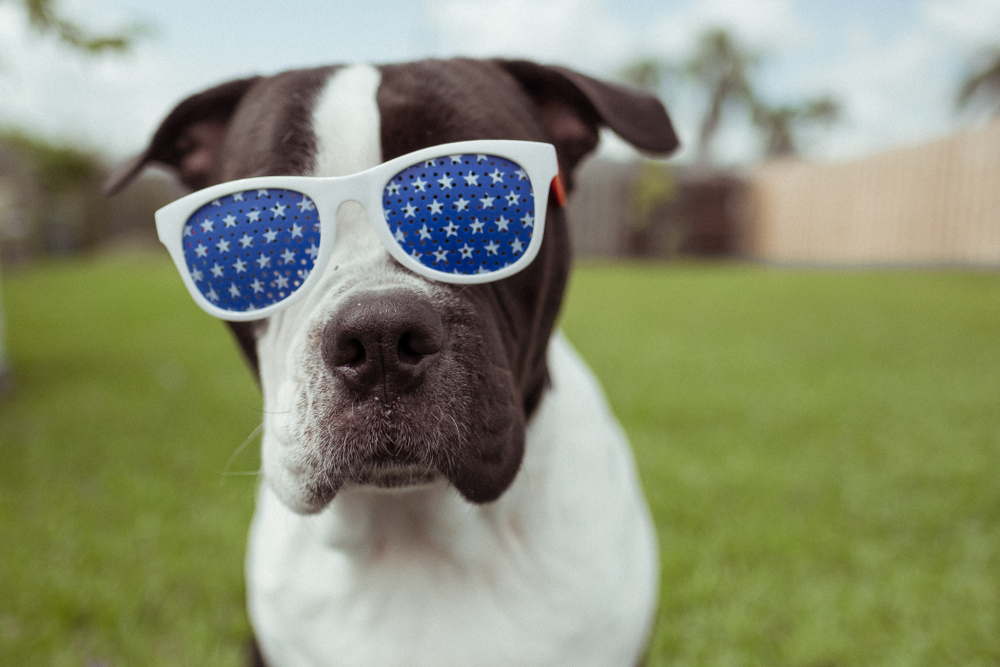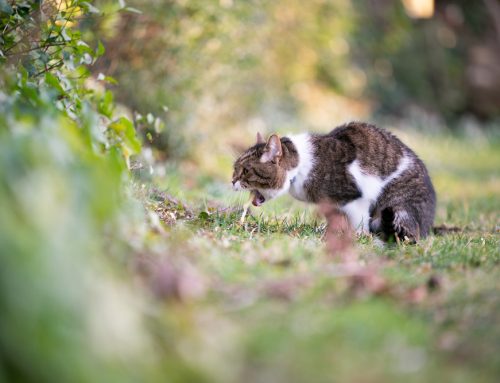Independence Day may be ideal for family and friends to gather and celebrate our country’s birthday, but the holiday holds many dangers for your pet. Fireworks fears are a top reason why pets run away during the summer, and crowds and events can also threaten your pet’s behavioral and physical wellbeing. Our Tamberly Animal Hospital team answers frequently asked questions about July Fourth pet safety to help ensure that everyone’s holiday is safe and sound.
Question: How do I comfort my nervous pet during fireworks?
Answer: Most pets upset by noises like fireworks actually suffer with a condition called noise aversion and cannot be easily comforted. Noise aversion causes a panic attack-like response to specific noises that worsens with each successive noise exposure. Medical and behavioral treatments are recommended for these pets to prevent worsening of their issue and development of new noise phobias, and to improve their overall quality of life.
Treatments vary, depending on the problem’s severity. Visit our hospital before July Fourth, bringing this completed checklist, so our team can determine how best to help your pet. Treatments may include:
- Anti-anxiety and sedative medications
- Home and environmental management
- Calming supplements and aids
- Progressive training programs with a professional trainer or veterinary behaviorist

Q: Should I take my pet to community July Fourth events?
A: For most pets, the answer to this question is “No”—your pet should stay home during outdoor July Fourth events. Most of these festivities include fireworks and large crowds, which can spook your pet and cause them to run away or suffer from anxiety, fear, or stress. A few pets may tolerate these outings, but leaving all pets at home is the safest option.
Q: Do more pets go missing on July Fourth than on other holidays?
A: The American Kennel Club found that one in five pets lost during the summer run away trying to escape a loud noise—most often, fireworks or thunderstorms. Other factors that contribute to July’s lost pet increase are frequent summer barbecues and parties where guests leave doors open and pets can escape. Ensure pets are treated for noise aversion and kept indoors in a safe, quiet place during fireworks to prevent them from becoming a statistic.
Q: Is a microchip better than a collar with ID tags for locating a lost pet?
A: If your pet gets away during July Fourth, a collar and ID tag are helpful to ensure their return. But, collars can fall off or break, while microchips offer permanent identification. Our team can implant a chip under your pet’s skin during a brief outpatient visit, and the chip can be scanned to locate your contact information should your pet get lost. Ask our team about microchipping your pet before July Fourth, before they have an opportunity to run away.
Q: Can my pet join us outside at our July Fourth barbecue?
A: We know your pet would love to join you and your guests outside during your gathering, but you’ll need to take some precautions first. Check that your fence is secure and ensure all gates are properly latched to prevent your pet from escaping during the fun. Place signs on exits asking guests to close doors and gates, and ask them not to feed your pet any table scraps, which may contain toxic foods or indigestible items like bones. Ensure pets get frequent breaks inside in the air-conditioning and have cool water and shade outside to prevent heatstroke. If you or your neighbors plan to set off fireworks, ensure pets are inside in their safe place.
Q: Is my pet susceptible to heatstroke?
A: Some pets are more susceptible to heatstroke than others, and should be closely monitored while they are outdoors or kept indoors entirely. Brachycephalics, such as pugs and bulldogs, cannot dissipate heat effectively and become overheated quickly. Puppies, kittens, senior pets, overweight pets, and pets with long, thick, or dark-colored coats are also susceptible.
Q: The mosquitoes are bad in our yard—can I use an insect repellent on my pet so they can stay outside?
A: All pets who go outdoors need a reliable flea and tick preventive. These are typically administered once monthly or every three months, either orally or topically. However, they are effective in preventing parasite infestations and tick-borne disease, but will not repel mosquitoes, biting flies, or other similar pests. Do not use human repellents, which contain chemicals that can cause neurologic problems in pets. Instead, use a natural, pet-specific spray or wipe labeled safe for dogs and cats.
People and pets can safely enjoy their Independence Day celebrations with some planning and preparation. Contact the Tamberly Animal Hospital team if you have additional July Fourth pet safety questions, or to schedule a consultation regarding your pet’s noise aversion. Our team can prescribe medications, supplements, and other treatments that can help your pet remain calm and collected during fireworks and other noise events.







Leave A Comment